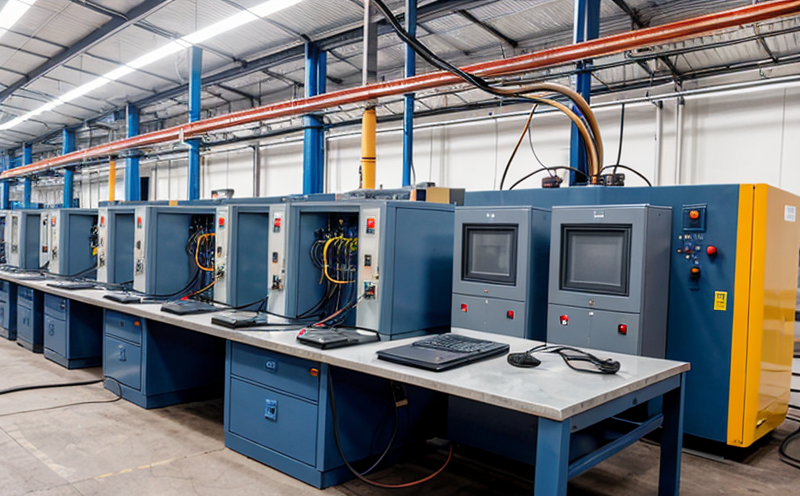ISO 11161 Integrated Manufacturing System Safety Testing
The ISO 11161 standard is pivotal in ensuring that integrated manufacturing systems are not only efficient but also safe to operate. This service focuses on the comprehensive safety testing of these systems, aligning with international standards such as ISO 11161 and other relevant guidelines. The primary goal is to identify potential hazards early in the design phase and ensure compliance with regulatory requirements.
Our state-of-the-art laboratory facilities employ advanced instrumentation and software tools to simulate real-world operating conditions of industrial systems. This allows us to accurately assess safety performance under various scenarios, including unexpected events such as power surges or system failures.
The process begins with a thorough review of the design documentation provided by clients. We then create a detailed test plan tailored to meet specific industry needs and regulatory expectations. Our team uses specialized equipment to conduct tests that mimic actual operational conditions, ensuring that all components interact safely within an integrated manufacturing environment.
A critical aspect of this service is our ability to identify potential risks early in the design cycle through simulation-based testing. By doing so, we help avoid costly modifications later on and contribute significantly towards improving overall system reliability. Additionally, our rigorous approach ensures that all tests comply with international standards like ISO 11161.
Our expertise extends beyond just meeting compliance requirements; it also includes providing actionable insights based on test results. These findings can guide improvements in both product design and manufacturing processes, ultimately leading to safer and more efficient industrial operations.
- Thorough review of design documentation
- Creation of customized test plans
- Use of advanced instrumentation for testing
- Simulation-based assessment under real-world conditions
- Rigorous adherence to international standards (ISO 11161)
We understand that safety is paramount in industrial settings, and our commitment to excellence reflects this belief. Through meticulous testing and analysis, we provide assurance that your integrated manufacturing systems meet the highest levels of safety and reliability.
Benefits
Implementing ISO 11161 Integrated Manufacturing System Safety Testing offers numerous advantages for businesses operating in industrial manufacturing sectors. These benefits include:
- Enhanced Compliance: Ensures that your operations adhere strictly to international standards, reducing the risk of regulatory penalties.
- Risk Management: Identifies potential hazards early on, allowing for proactive mitigation strategies before they become critical issues.
- Better Product Design: Provides valuable insights into how different elements within an integrated manufacturing system perform together, guiding improvements in design and functionality.
- Increased Efficiency: By ensuring that all parts of the system work harmoniously without causing safety concerns, production processes become more efficient.
Industry Applications
This service is particularly beneficial for companies involved in the manufacturing and processing industries. Whether you are designing complex automation systems or upgrading existing facilities, ISO 11161 compliance testing helps maintain high standards of safety and reliability.
Our clients range from small-scale manufacturers seeking to enhance their competitive edge by ensuring robust safety measures, to large enterprises looking to comply with global regulations while maintaining a reputation for excellence. By leveraging our expertise in this area, your organization can benefit from enhanced trust among customers and partners alike, as well as peace of mind knowing that your systems are safe and effective.
Quality and Reliability Assurance
- Data Accuracy: Rigorous calibration checks ensure precise measurement results.
- Consistency: Standardized procedures guarantee consistent outcomes across multiple tests.
- Transparency: Full documentation of every step in the testing process allows for easy review and audit.





